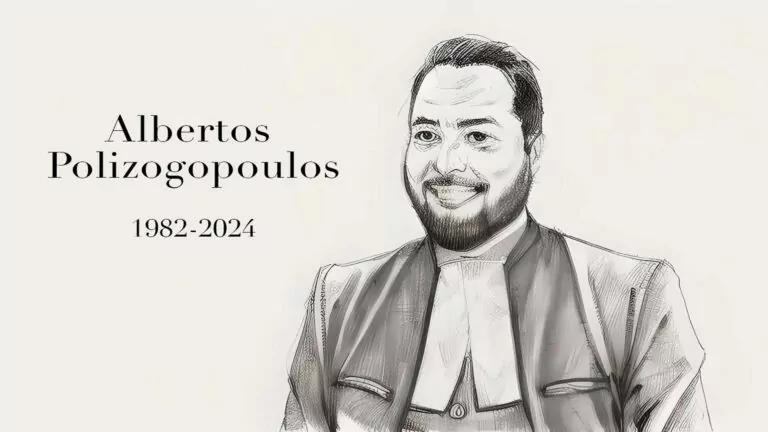On May 9, 2024, the LORD called Albertos Polizogopoulos to Himself, completing his task on earth at the age of 41.
Not long after starting law school, Albertos was introduced to his wife-to-be Faye Sonier, a follower of Christ. Albertos decided to investigate the Christian faith for himself and was convicted by God’s Word. He proceeded to dedicate the rest of his life to his Lord Jesus Christ, who drew him closer and closer.
Unlike the United States, Canada doesn’t have many Christian lawyers devoted to upholding constitutional freedoms. Albertos has been one of the few exceptions. He regularly defended life and freedom in Canada’s courts, including ten appearances before the Supreme Court of Canada.
When I first met Albertos, through our mutual friend and colleague André Schutten, he jovially compelled us to stay up well into the early hours of the new day. He loved to tell stories and debate, while enjoying a good cigar. But as the years progressed, he changed his priorities and devoted his time to his family.
ARPA Canada worked with Albertos regularly through the years, either by retaining him or intervening alongside him. He also wrote for RP recently about the coming battles over church property.
His obituary testified to how the LORD continued to change Albertos and draw him closer, especially since he was diagnosed with cancer three years ago.
“Albertos frequently spoke about how Christ changed his life. He exhibited peace about his terminal diagnosis and a profound trust that God was sovereign…. Days before his death, he looked at his wife from his hospital bed and said, ‘I don’t think I know anyone more blessed than I am.’”
There are very few lawyers who have the willingness and ability to devote their full-time career to upholding the value of human life, and our fundamental freedoms. I thank God for Albertos. His earthly race has completed, and I pray that more young Christians will pick up his baton and keep running.












